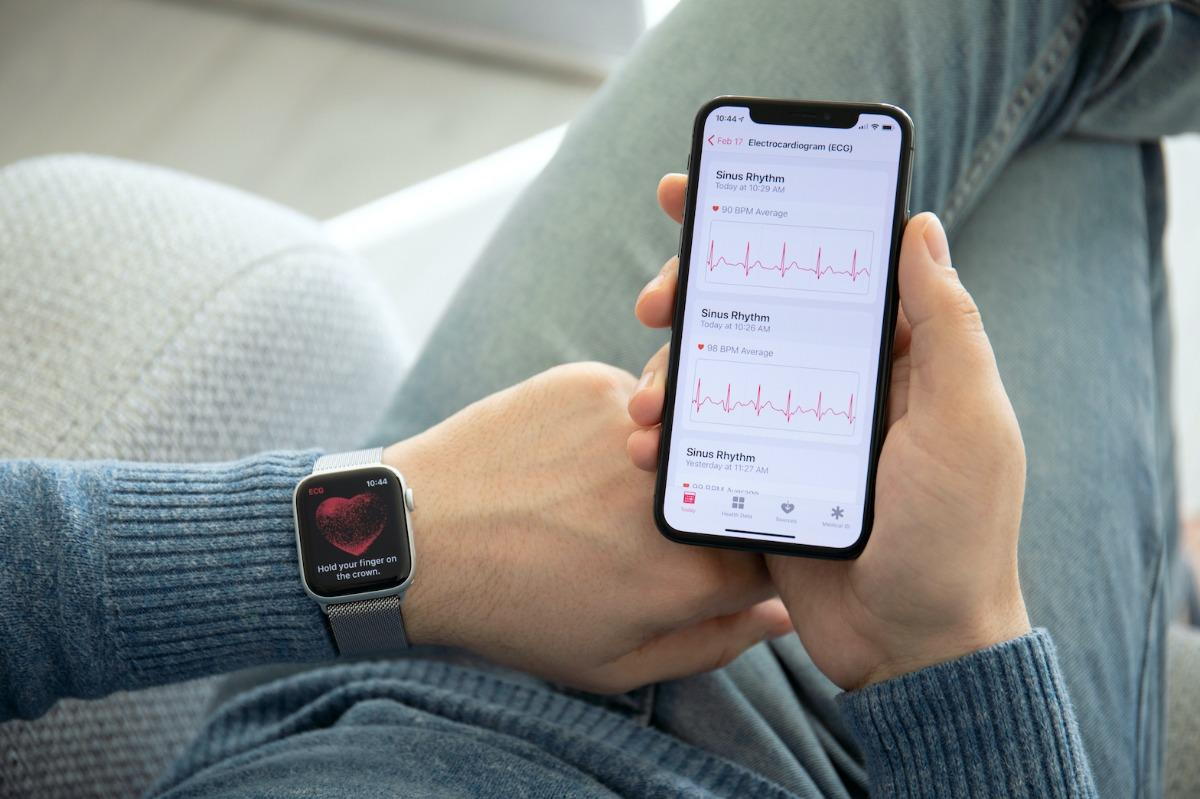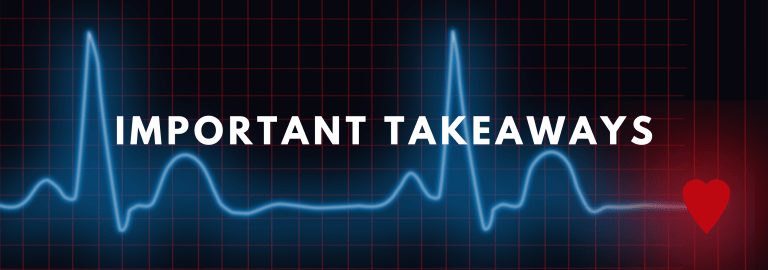
Atrial fibrillation (AFib) is an abnormal heart rhythm that can occur suddenly and without warning. Characterized by skipping heartbeats and a racing heart rate, AFib can occur in people with heart conditions – but it can also occur in those without any known heart problems.
Having resources to monitor your heart rhythm at home is a great way to identify problematic heart rhythms. At-home monitors can be very helpful for the early detection of Atrial fibrillation (AFib) while connecting people to medical professionals faster. While they are not a replacement for professional medical care, these monitors can be a helpful diagnostic tool.
Dr. Nazeri discusses some of the available options for monitoring heart rhythms in the home setting:

The Apple Watch
The Apple Watch is a smart device worn on the wrist that can accurately detect irregular heart rhythms. All Apple Watch Series 1 and later devices are capable of detecting irregular heart rhythms.
Using a sensor on the back of the watch that is in contact with the wrist, the Apple Watch periodically checks heart rate and rhythm. If an irregular heart rhythm (AFib) is detected, the watch sends a notification to the person’s smartphone. Therefore, to ensure there are no missing messages, Dr. Nazeri recommends turning on the notification setting on the connected smartphone.
Additionally, the Apple Watch Series 4 and above are capable of taking a thirty-second EKG reading. Simply by holding a finger on the crown of the watch for thirty seconds while sitting still. The EKG is saved in the Health app on the connected smartphone for easy access and sharing with medical professionals. The Apple Watch does not diagnose all abnormal heart rhythm called arrhythmias, but Dr. Nazeri recommends sharing the EKG readings with a trained cardiologist to receive an accurate interpretation.
⚠️ Important reminders about the Apple Watch:
- It does not diagnose heart attacks, strokes, blood clots, or other medical emergencies.
- It is not constantly reading the pulse in real-time. Consequently, it is possible to have an episode of Atrial fibrillation (AFib) without notification from the watch.
- In the case of a cardiac medical emergency, please contact emergency services and seek immediate medical attention.

KardiaMobile ECG
The AliveCor KardiaMobile ECG is a portable and accessible ECG monitor that attaches to the back of any smartphone. The device uses an app that is available on both Apple and Android smartphones.
To use this device, a person must start the app and then sit still while placing their fingers on the metal sensor. The KardiaMobile ECG will take an accurate ECG reading in seconds. All ECGs are stored in-app and can be viewed at a later time and shared with medical professionals. So, it is vital to share the ECGs with a trained cardiologist for proper interpretation and diagnosis.
Dr. Nazeri offers a TeleHealth program (video calls for cardiac consultations) for patients experiencing AFib. Therefore, having documented ECGs from KardiaMobile can be very helpful for Dr. Nazeri to properly diagnosis cardiac arrhythmias.
⚠️ Important reminders about KardiaMobile: Using at-home ECG monitors is not a replacement for professional medical care. Therefore, please see a cardiologist for accurate interpretation and diagnosis of any at-home ECG reading.

The CardiacSense Medical Watch
The CardiacSense Medical Watch is another smartwatch device available to monitor many different health measurements. This watch accurately records a person’s pulse in real-time, allowing the detection of any irregular heart rhythms. All collected data is made available on the connected smartphone app.
The CardiacSense Medical Watch is an accurate and accessible option for people looking for real-time updates on their cardiac health. Dr. Nazeri recommends sharing the data with medical professionals for interpretation and proper diagnosis.

While many of these devices are helpful tools to have at home, there are some important takeaways to remember when using these technologies:
- At-home monitors do not replace professional medical help and they cannot replace regular consultations with a family physician or cardiologist. Dr. Nazeri offers a TeleHeart (telehealth) program with video consultation to discuss AFib symptoms and at-home monitoring systems
- Seek out medical attention when feeling unwell, whether or not the device identifies an arrhythmia. Many at-home monitors do not continually monitor heart rhythm, meaning it is possible to experience AFib without a device notification. Seek medical attention immediately if experiencing any cardiac symptoms.
- At-home monitors are not for everyone and many monitors are not made for those diagnosed with persistent (continual) AFib. Please consult with a cardiologist to learn more about options for at-home monitoring.

About Dr. Nazeri
Dr. Nazeri offers a TeleHeart program to easily set up a virtual consultation to discuss symptoms and the findings of any at-home EKG and AFIB detection monitors.
For more information about cardiac arrhythmia monitoring and atrial fibrillation, please call us at 713-909-3166 or visit our website at www.MobitzHeart.com
